Jaron Lanier Quotes & Sayings (Page 2)
Jaron Lanier quotes and sayings page 2 (artist). Here's quote # 11 through 20 out of the 46 we have.
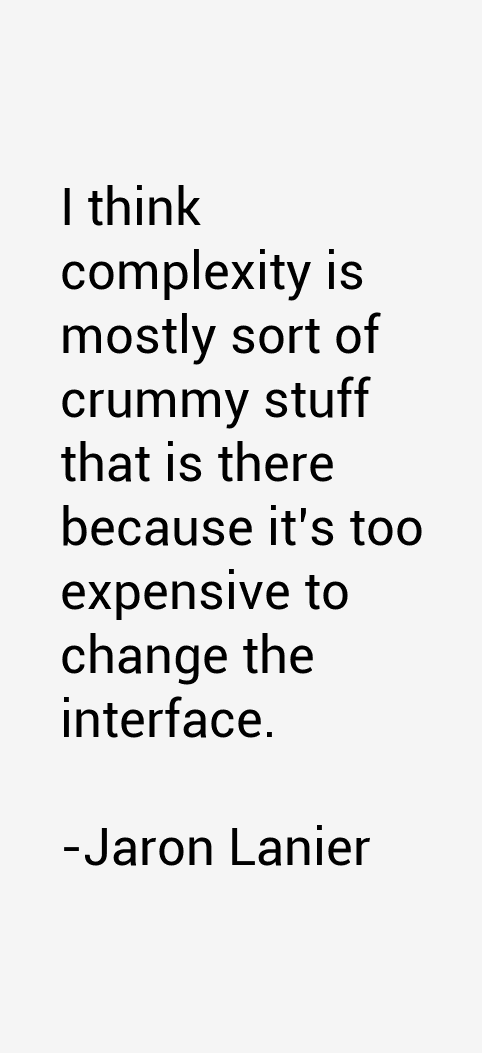
“I think complexity is mostly sort of crummy stuff that is there because it's too expensive to change the interface.”

“Anonymous blog comments, vapid video pranks and lightweight mash-ups may seem trivial and harmless, but as a whole, this widespread practice of fragmentary, impersonal communication has demeaned personal interaction.”
“Human beings either function as individuals or as members of a pack. There's a switch inside us, deep in our spirit, that you can turn one way or the other. It's almost always the case that our worst behaviour comes out when we're switched to the mob setting. The problem with a lot of software designs is that they switch us to that setting.”
“The wisdom of crowds works when the crowd is choosing the price of an ox, when there's a single numeric average. But if it's a design or something that matters, the decision is made by committee, and that's crap. You want people and groups who are able to think thoughts before they share.”
“Every time we give a musician the advice to give away the music and sell the T-shirt, we're saying, 'Don't make your living in this more elevated way. Instead, reverse this social progress, and choose a more physical way to make a living.' We're sending them to peasanthood, very much like the Maoists have.”
“The basic problem is that web 2.0 tools are not supportive of democracy by design. They are tools designed to gather spy-agency-like data in a seductive way, first and foremost, but as a side effect they tend to provide software support for mob-like phenomena.”
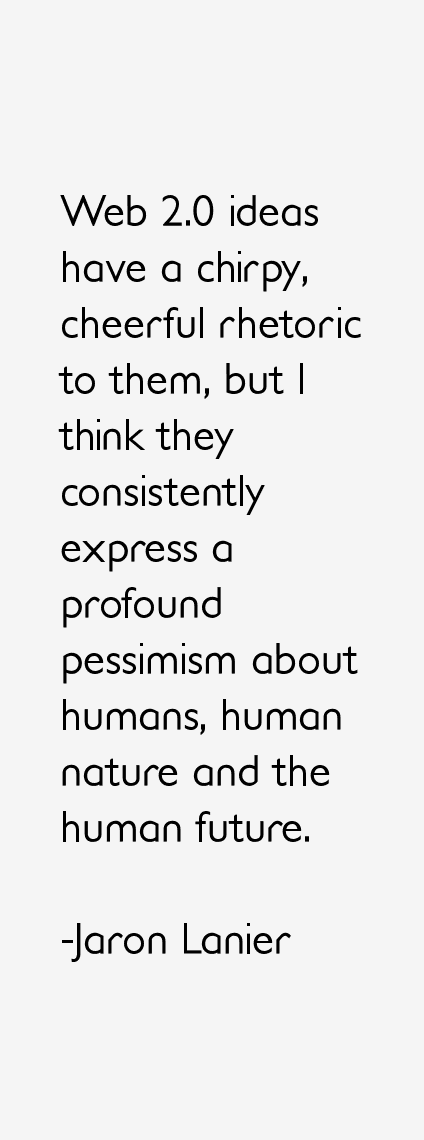
“Web 2.0 ideas have a chirpy, cheerful rhetoric to them, but I think they consistently express a profound pessimism about humans, human nature and the human future.”
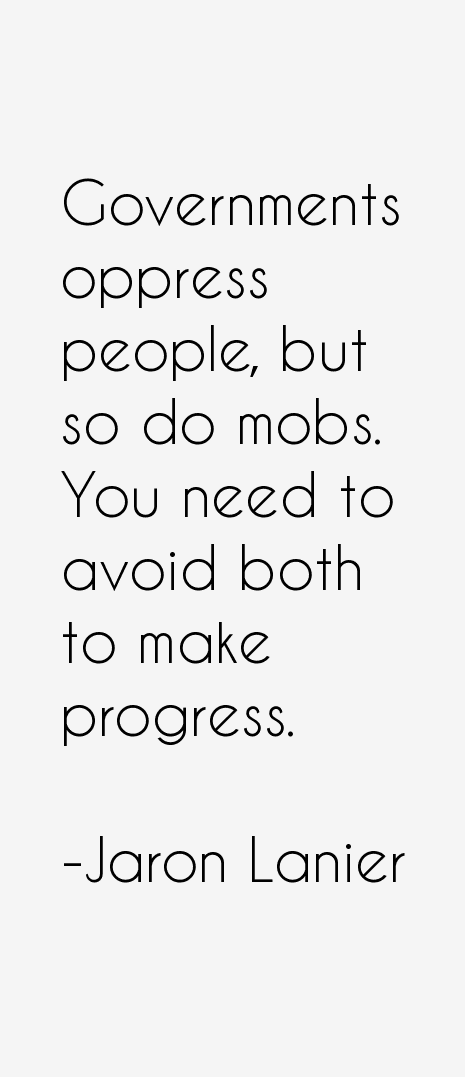
“Governments oppress people, but so do mobs. You need to avoid both to make progress.”
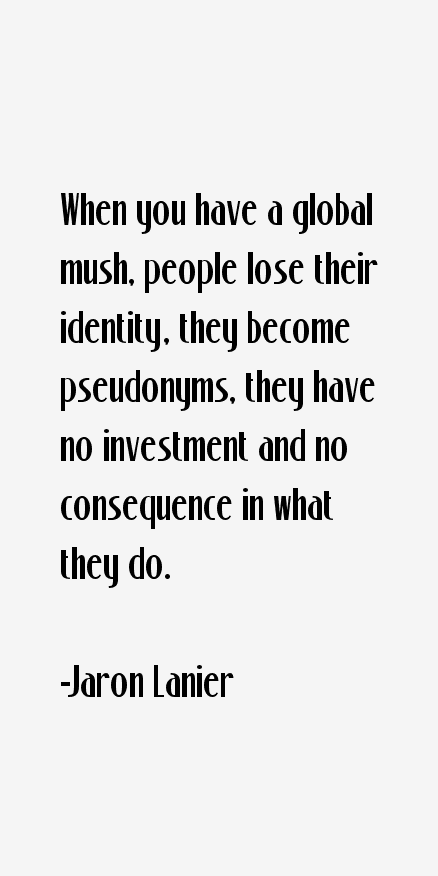
“When you have a global mush, people lose their identity, they become pseudonyms, they have no investment and no consequence in what they do.”
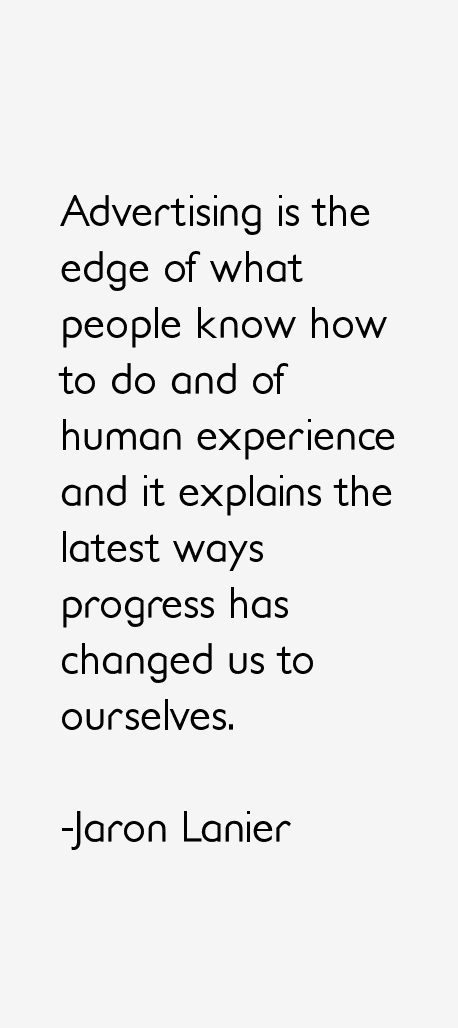
“Advertising is the edge of what people know how to do and of human experience and it explains the latest ways progress has changed us to ourselves.”
Jaron Lanier Quotes Rating
No Ratings Yet
Leave A Comment
























